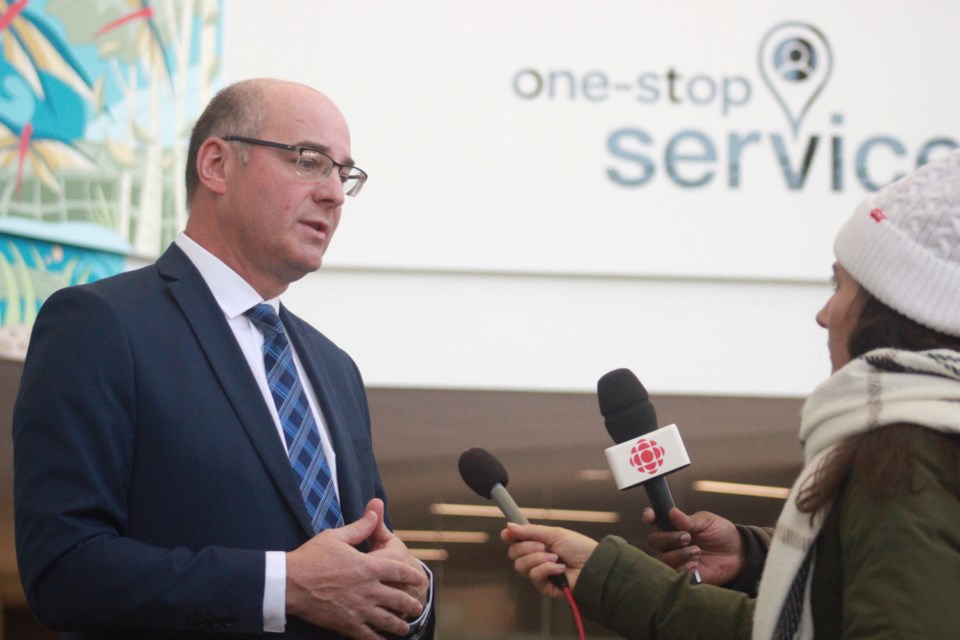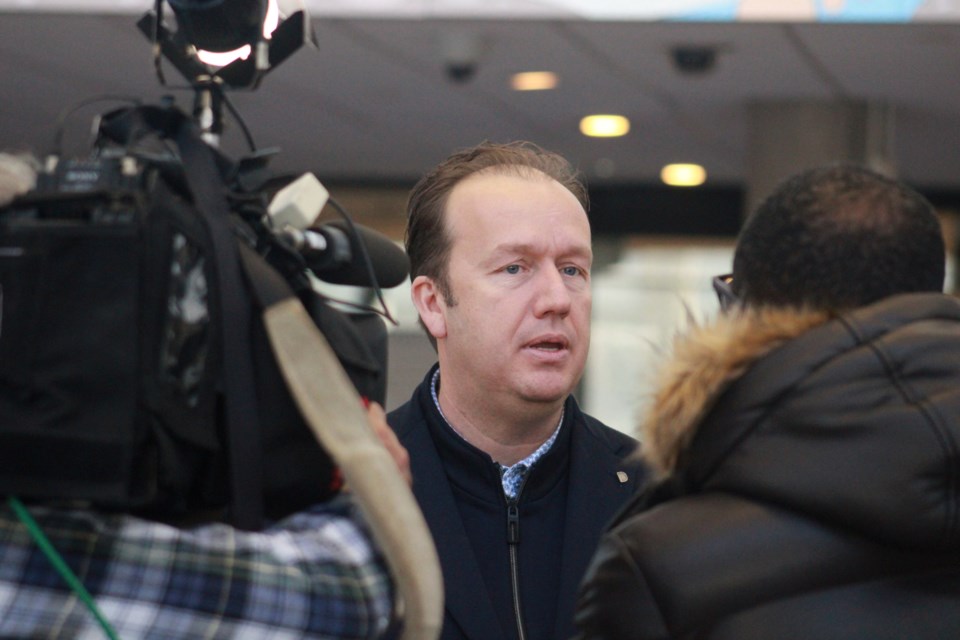The restructuring of City of Greater Sudbury management will create two net new permanent positions at a net annual cost of approximately $525,000.
This, plus one temporary strategic projects lead position lasting approximately 36 months to oversee the downtown arena/events centre project and Cultural Hub at Tom Davies Square.
The temporary position will be filled by Tony Cecutti, who currently serves as city Growth and Infrastructure general manager and is on the verge of retirement.
The two new permanent positions consist of chiefs, including one each for Fire Services and Paramedic Services, who will work under the direction of a general manager of Emergency Services and Community Well-being.
The city currently has Joseph Nicholls as its Community Safety general manager, through which he serves as chief of both fire and paramedic services.
“In the past, there have been different models,” Mayor Paul Lefebvre told Sudbury.com on Jan. 9, adding that with much going on in these areas, including emergency services infrastructure renewals and growing demands for both services, more management was required.
“We’re a growing city — record numbers last year — and we’re not seeing things slow down, we’re seeing a lot of projects continuing this year, so we really want to set ourselves up for success to be able to respond to the needs of the general population.”
Nicholls will retire this year, so a new general manager will be recruited.
Other recruits under the city’s four-department plan will include hiring new general managers to head Community Infrastructure and Growth, Development and Environmental Sustainability.
As soon as a new chief administrative officer is hired, Kevin Fowke will shift from his interim position as city CAO back to heading Corporate Services as its general manager, as he did prior to city council members voting to dismiss Archer last October.
Aside from Archer’s dismissal and the mayor’s decision (supported by Archer) in late 2022 to revoke newly hired city Finance director and chief financial officer Hailey Pinksen due to her residing in Alberta, the balance of recent management turnover has to do with retirements and a general manager’s resignation to take a position elsewhere.
Last year, Community Development general manager Steve Jacques left Greater Sudbury to take a position with the Region of Peel. City Finance, Assets and Fleet executive director Ed Stankiewicz retired in 2022, and both Cecutti and Nicholls have retirement plans on their horizons.
Although Lefebvre has been the face for these changes via a media release sent Wednesday night and a media availability at Tom Davies Square on Tuesday morning, he clarified to Sudbury.com that the restructuring was a decision of city council as a whole.
Despite some reports to the contrary, including by past city council member Robert Kirwan on the Valley East Today page on Facebook which Kirwan moderates, Lefebvre told Sudbury.com that he did not invoke provincially afforded strong mayor powers to make these changes.

“Not at all,” he said, clarifying, “I’ve never used my strong mayor powers.”
“I work well with council,” he said, adding that he still doesn’t have any plans to invoke strong mayor powers which allow him the opportunity to invoke certain changes without majority council support.
Changes to the city’s organizational structure have been bandied about for years, Lefebvre said, and amplified in recent months as some city managers’ retirements began coming up.
Everything has come to a head now, which made it an ideal time to finally move forward with a restructuring which has been going on behind the scenes for some time, Fowke said.
Outside of reporting to different people in some cases, Fowke said the majority of municipal staff won’t notice much of a difference with these changes, and neither will the general public.
The hope, Lefebvre, is that the reorganization will allow for greater “synergies” between municipal operations, and allow staff to better target funding from senior levels of government.
Late last year, the city’s elected officials voted to begin their national search for a new CAO in-house and to enlist a recruitment search firm if their internal efforts are unsuccessful.
The city’s structural reorganization is slated to be phased in throughout the year.
The two new permanent manager positions are not currently accounted for in the city’s 2025 budget, but Fowke said they’d be baked into the 2026 edition.
The temporary strategic projects lead position will be funded by the existing events centre and cultural hub budgets.
The following is the city’s overview of its four newly defined departments and key changes therein:
Community Infrastructure Department
- This renamed department will include Engineering Services, Linear Infrastructure, Water and Wastewater and Environmental Services.
- A new general manager will be recruited.
Corporate Services Department
- This department will continue to manage corporate services such as Human Resources and Organizational Development, Legal and Clerks Services, Information Technology, Financial Services, Corporate Security and Bylaw, Fleet and Facilities.
- The relatively new service of Data, Analytics and Change will move from the Office of the CAO to Corporate Services.
Emergency Services and Community Wellbeing Department
- This new department will merge the current Community Safety and Community Development departments (minus Transit Services).
- It will include Fire Services and Paramedic Services, and each of these services will have their own dedicated chief.
- A new general manager will be recruited.
Growth, Development and Environmental Sustainability Department
- Economic Development, Building Services and Planning Services will join together for greater collaboration in this new department.
- The department will also include Transit Services and Infrastructure and Capital Planning Services.
- A new general manager will be recruited.
Tyler Clarke covers city hall and political affairs for Sudbury.com.




